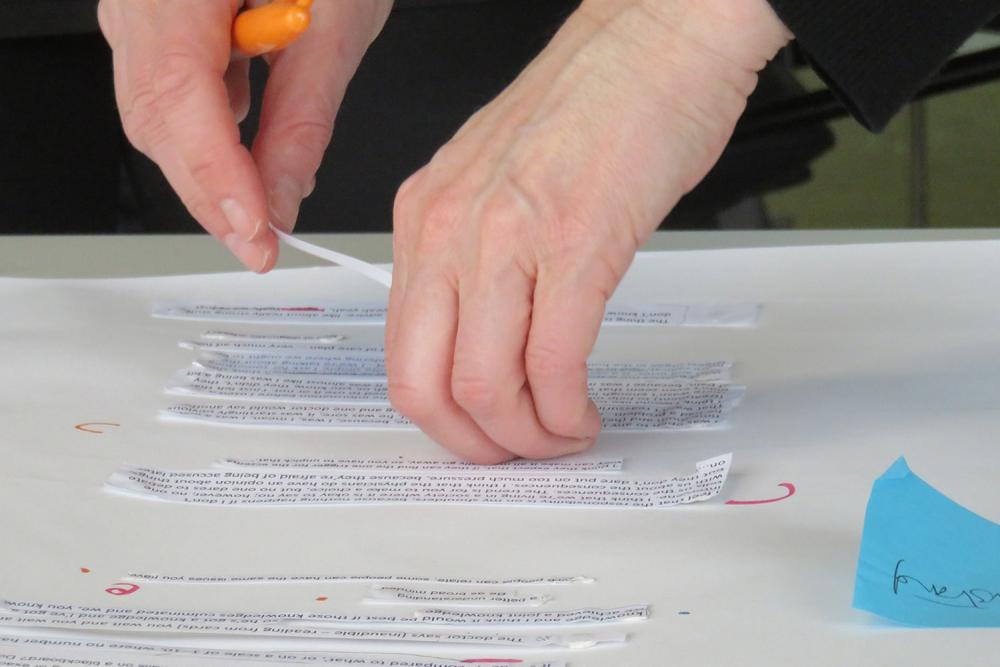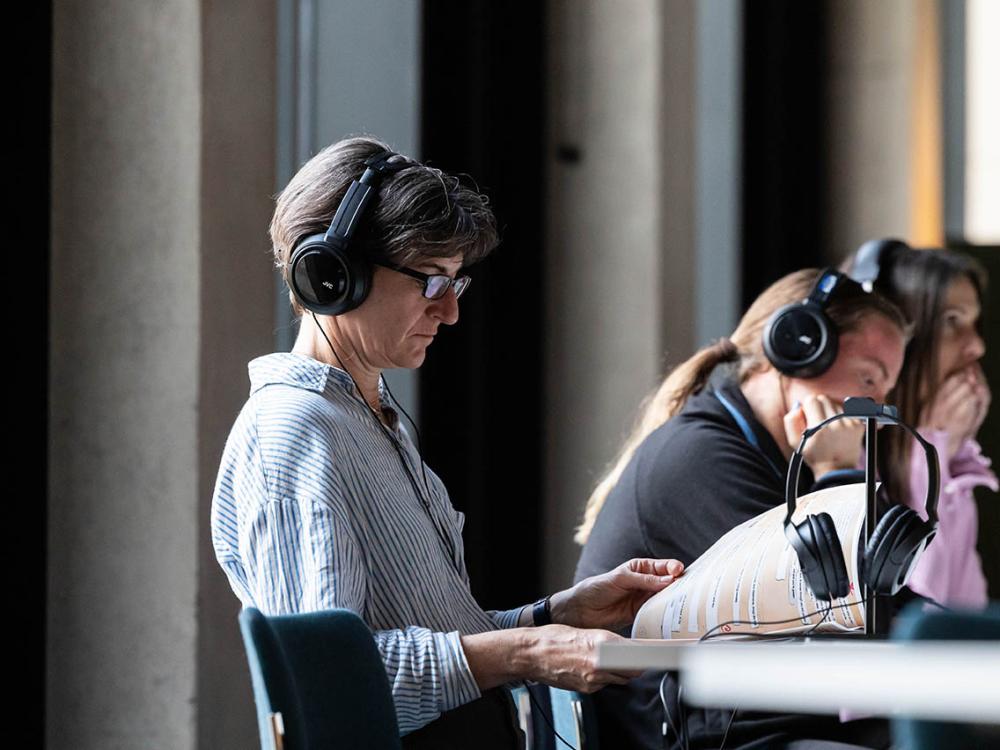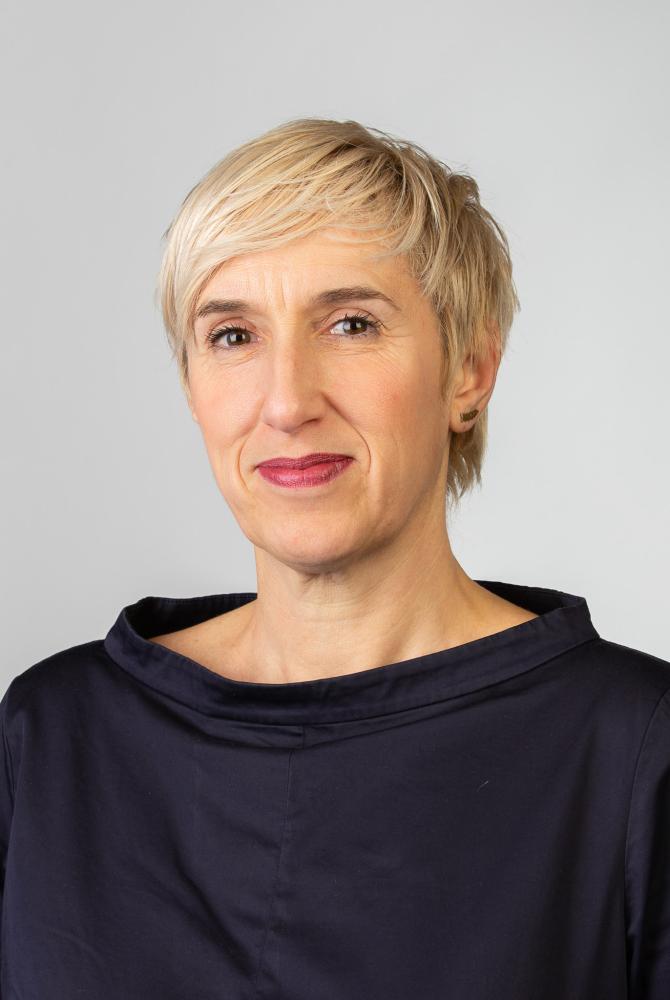Edinburgh College of Art (ECA) academic Beverley Hood is wrapping up a three-year research project entitled Surface Echoes alongside Professor Sara Brown of the University of Edinburgh’s Institute of Genetics and Cancer.
Beverley is an artist and Reader in Technological Embodiment and Creative Practice at ECA.
The project, funded by a ScotPEN Wellcome Engagement Award (ref 220875/Z/20/Z), was developed in partnership with individuals affected by eczema, organisation ASCUS Art and Science and patient support group Eczema Outreach Support, alongside creative professionals and arts and health researchers.
The main aim of the project was to bring to life the everyday challenges and emotional impact of living with eczema. The research team built on quotes captured during medical research from those with experience of eczema. These quotes are often buried within academic, clinician-focused medical literature that can be inaccessible to non-experts.












